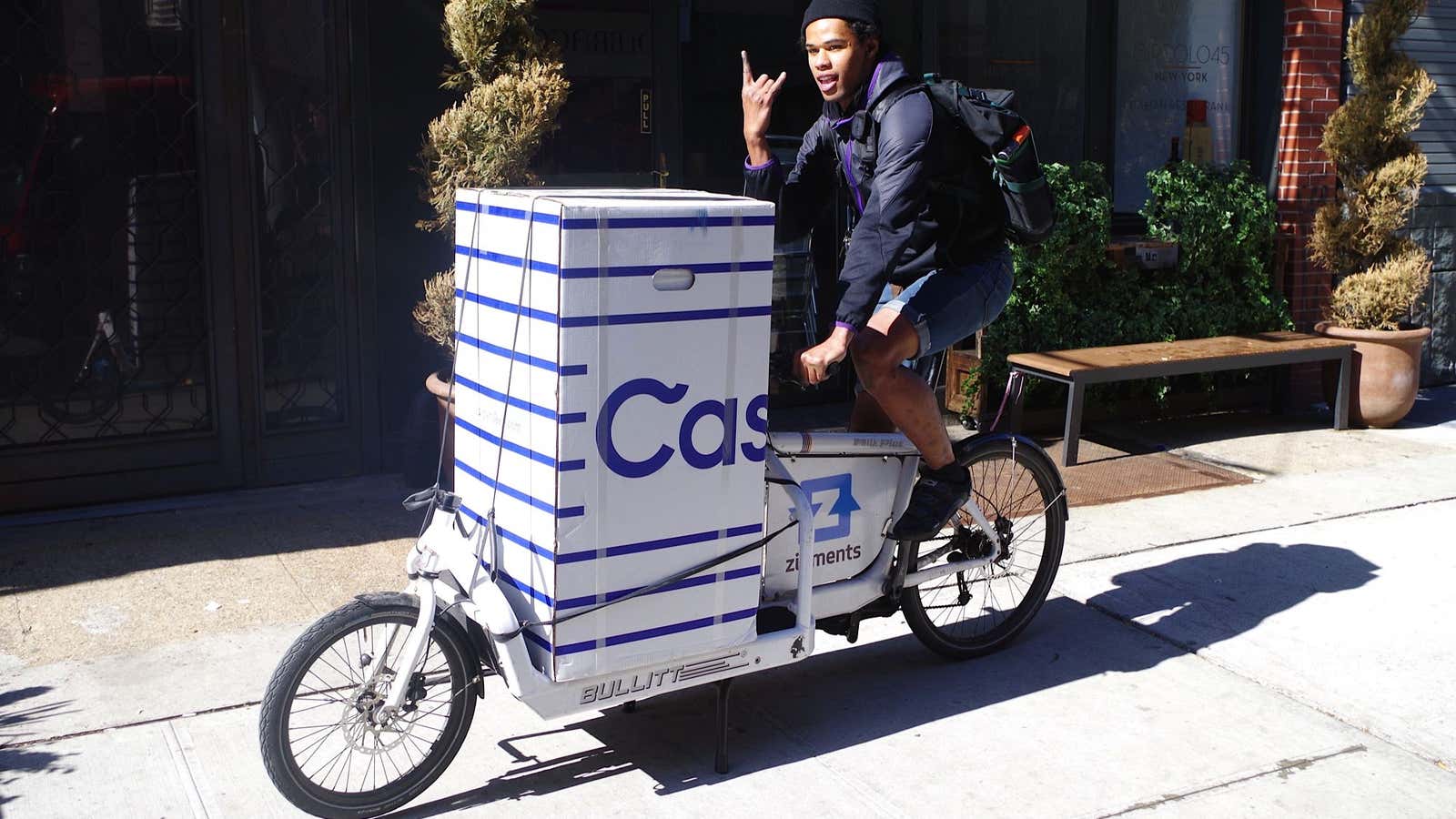The “Humidity Fighting Duvet” looks a lot like a typical Kickstarter project. “I would definitely consider myself a Duvet nerd,” begins a three-minute video describing the invention, which also includes shots of someone holding a notepad, a discussion involving squares of wool and rolls of fabric, and a brief overview of variable humidity versus temperature.
Kickstarter describes itself as a website that “helps artists, musicians, filmmakers, designers, and other creators find the resources and support they need to make their ideas a reality.” But the duvet project doesn’t need resources or support to become a reality. The company that launched it—a mattress and sleep accessory brand called Casper— closed a $170 million round of funding just two months ago, bringing the total amount of venture capital it has raised to $240 million. It says it’s already done more than $300 million in sales, and its backers outside of Kickstarter include Kevin Spacey, 50 Cent, and Target.
So far Casper’s Kickstarter campaign, which ends September 27, has raised a little more than $140,000 from 400 people.
Kickstarter has for years insisted that it is not a store, mostly while responding to allegations that people have used its site to market and sell “vaporware,” projects that promise glitzy new gadgets that never materialize. The company has not yet addressed the opposite way creators can turn its platform into a store: Established brands using the platform as a marketing tool for products that will almost certainly come to life with or without crowdfunding help.
Among projects in Kickstarter’s “trending section” are a SousVide machine made by an eight-year-old company that sells its products at Bloomingdales; a portable espresso machine made by a company that says it sells products in Walmart, Sears, and Home Depot; and a toilet plunger made by the family that invented the Squatty Potty, a toilet stool that the family told CNBC in 2016 should top $100 million in sales “within the next few years.”
Kickstarter’s biggest competitor, Indiegogo, has actively solicited these types of campaigns, offering what it calls “enterprise crowdfunding services” and access to a “global network of creators & early adopters.”
Crowdfunding campaigns make good marketing vehicles for companies that are trying to position themselves as innovative. “We are a startup within a large company” has practically become a business mantra as companies from Lululemon to Deutsche Bank set up “innovation labs.” Kickstarter is a place where scrappy inventors present new ideas, so if you’re trying to position your company as a scrappy inventor, it’s a natural place to launch a campaign. “You might know Casper as the mattress company,” Jesse Menayan, Casper’s Design director, explains in the video, “but there’s this faction of Casper called Casper Labs that lives in San Francisco, and we’re kind of the skunkworks of Casper.”
“For a startup that already has funding, it’s often about establishing a direct connection with people who are curious about your product and can help you make it better,” Kickstarter said in a statement. “Having established creators on Kickstarter doesn’t hurt the indies.”
Yet there is still something about a company like Casper, which could reasonably file an IPO, asking people to “back this project” that seems disingenuous, especially alongside the community theater productions and garage band albums that still make up a high number of Kickstarter’s successful campaigns.
A Casper spokesperson echoed Kickstarter’s statement, saying that launching the new anti-humidity duvet on Kickstarter allows the company to gather early feedback on an experimental new design (the duvet incorporates wool). “This is a new way to launch a product for us, with the focus on early early access, not fundraising,” the company said in a statement. According to a timeline included in the Kickstarter project, Casper had already finalized specs for its materials and begun fabric production before the Kickstarter project launched, and before it ends, it plans to have finalized production and started cutting and sewing fabric for the duvet’s shells. The amount of feedback it will be able to incorporate into the final experimental product at that point seems minimal.
Casper describes “rewards” for backing the project as though they are pre-orders, with labels such as “Early Bird Special – Twin/Twin XL.” Despite this, customers still pass through Kickstarter’s standard warning before checkout: “Kickstarter is not a store. It’s a way to bring creative projects to life.”
